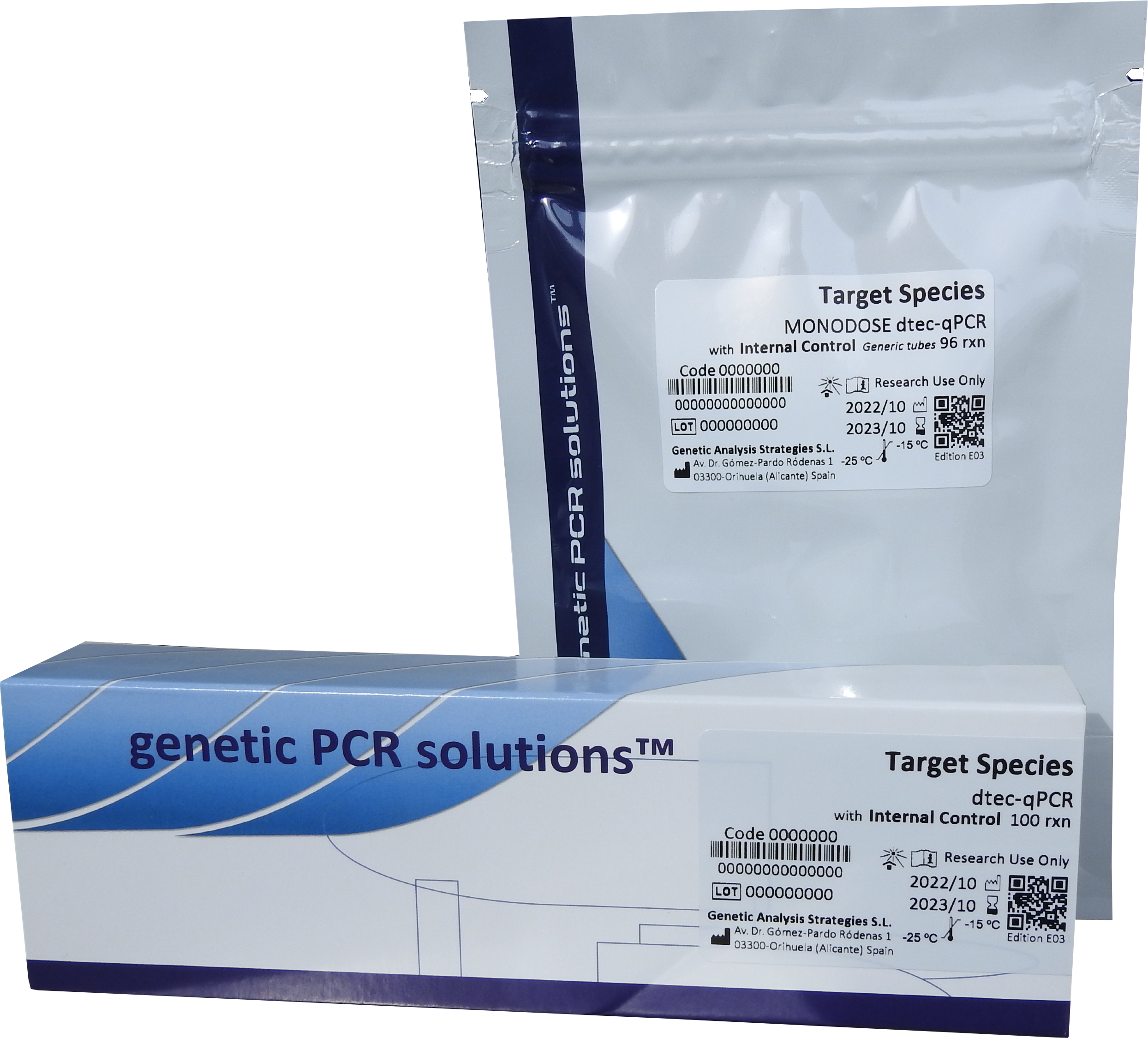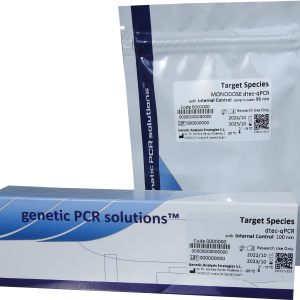Echinococcus granulosus
Description
The EchGra qPCR comprises a series of specific targeted reagents designed for Echinococcus granulosus detection by using qPCR. Echinococcus granulosus is a parasitic cestode (tapeworm) with a segmented, flat body that belongs to the family Taeniidae. It has a complex life cycle, with canids acting as the definitive hosts and various ungulates, including sheep and goats, acting as intermediate hosts. Humans may also become accidental intermediate hosts.
The parasite causes cystic echinococcosis, also known as hydatid disease, which is characterised by the formation of fluid-filled cysts, primarily in the liver and lungs. Clinical manifestations can range from asymptomatic cases to severe symptoms such as abdominal pain, respiratory distress, or anaphylactic reactions following cyst rupture. Transmission occurs through the ingestion of eggs shed in the faeces of infected canines. Human infection can result from contact with contaminated food or water. The disease is globally distributed, with a higher prevalence in pastoral regions of South America, the Mediterranean, the Middle East, sub-Saharan Africa, and parts of Asia and Oceania.
Kit Content and Prices
GPS® primers and probes are sold for research use only
All GPS® Kits are available in F100 and MONODOSE Format
GPS® reagents are compatible with all qPCR devices
Manufacturer: genetic PCR solutions®




